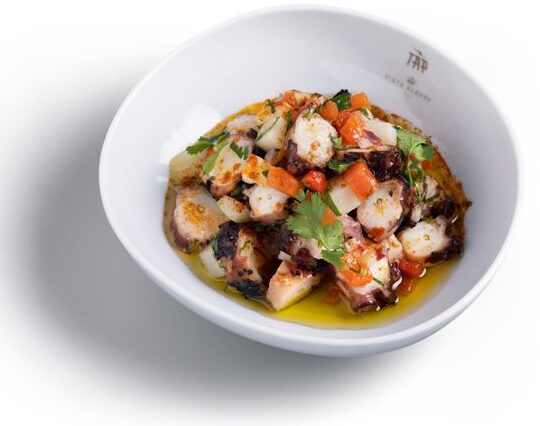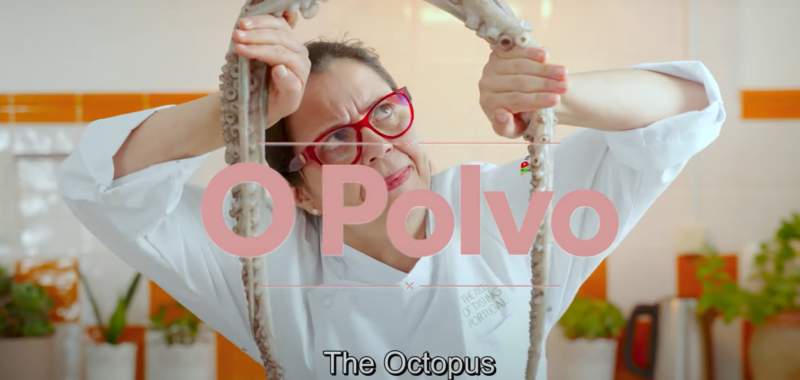Serving a country of just over 10 million people, TAP Air Portugal has had to look beyond its shores to build scale. It’s a strategy that’s worked. Today, just 20% of TAP passengers are Portuguese.
However, when only one in five passengers is from Portugal, how Portuguese can you – should you – be?
Itâs a question on the mind of Catarina Ãndio, TAPâs Head of Onboard and Ground Product. She joined the flag carrier last year and is on a mission to improve passenger experience at all levels.
Speaking to Skift on the fringes of Lisbonâs Humberto Delgado Airport, Ãndio uses one word time and again: Portugality.
Walk the corridors of TAP headquarters and itâs a term youâll hear frequently. Put simply, the goal is to reflect Portuguese culture, cuisine, and products as part of the journey.
What can initially feel like a fluffy marketing concept is rooted in sharp business acumen. Being distinctive is a competitive advantage.
âWe donât make it a particular differentiator on certain routes where we have strong competition. Our commitment is to have Portugality onboard, no matter if youâre going to Brazil or flying short-haul in Europe,â says Ãndio.
A Delicate Balance for Airlines
How exactly does an airline turn this concept into practice? One of TAPâs flagship âPortugalityâ projects is the Local Stars initiative. Launched in March 2023 and running until next April, business class passengers on long-haul flights departing Lisbon are offered a bespoke menu.
Twelve chefs representing regions across mainland Portugal and its Atlantic islands are tasked with creating dishes that showcase the area while considering seasonality and the practicalities of dining at 35,000 feet.
Slick social media videos and bonus content are available online to support the campaign. The current menu centers on river crayfish from the central LezÃria do Tejo region.
Anything for Us Mere Mortals?
Curating a locally focused experience for high-spending passengers is one thing, but what about the 90% of customers who travel in economy?
âOur commitment is exactly the same,â says Ãndio. âWhen we prepare the menus for economy class, weâre still focused on Portugality. We ask for local recipes, local ingredients. For example, many other international airlines like to serve curry in economy. Thatâs not something youâll see us doing. Our goal wherever youâre sitting on the plane is that you feel like you are in Portugal.â


Such commitments are noble, but surely airline profitability comes ahead of platitudes? Pressed on whether TAP would pay more to have a distinctive local supplier, Ãndio replies with a steadfast âyes.â
âIn our procurement process, we ask for Portuguese suppliers, but itâs not always easy. Giving additional consideration to local companies is the only way, even if it costs us a little more.â The TAP executive reveals that 70% of the airline’s in-flight products are currently sourced from Portuguese firms, with an ambition to push this figure even higher.
How Much is Too Much?
This prioritization of domestic businesses is evident across the company. From the leather used on the aircraft seats to the amenity kits. Every drop of wine is locally sourced. But is there such a thing as too much Portugality? Enter the octopus.
âThe difficulty is meeting the balance between international requirements. Many foreigners wonât look at octopus as a good thing to eat, but itâs very traditional here,â says Ãndio. âSo then we have the question – should we serve them octopus? We need to think hard about our passengers who arenât from Portugal and might not like to eat the same things. Itâs not easy to find the right balance and put all these things together.â
Asked about the outcome of the octopus conundrum, Ãndio confirms: âYes, weâve successfully served octopus and weâll do it again – but our passengers will always have an option.â


Although tentacles are no longer taboo, there are a handful of traditional products that are hugely popular in Portuguese society that youâll never find onboard.
Pork, a staple of many recipes, is often replaced with smoked turkey to maintain traditional flavor profiles while respecting religious and cultural dietary restrictions. Cheese is another consideration. Only pasteurized dairy products are allowed to be served, limiting TAPâs ability to showcase some of the nation’s best cheeses.
Food and wine is one of the countryâs trump cards, but it isnât the only way to get a distinctive edge over international rivals. In June, TAP launched its first Altitude Film Festival. As well as bringing original content to the airlineâs in-flight entertainment system, it offers the chance for filmmakers to have their work presented on a truly global stage. Notably, all the films submitted for consideration must focus on Portuguese culture and/or be shot in Portuguese territory.
An expert panel is currently finalizing 10 films that will be made available for long-haul passengers to watch onboard in October. Travelers will be able to nominate their favorite via a follow-up survey. The ultimate winners will be announced later in the year.
Why Knowledge is Power
Whether customers are flying high in 1A or in a less enviable economy seat near the lavatories, Ãndio says passenger feedback plays a critical role in refining the onboard experience. Detailed reports are produced by cabin crew after every flight, with a head office team analyzing them to find improvements and identify trends.
Ãndio notes that this feedback loop helps the airline address specific issues: âOn an average day weâll receive around 80 cabin reports, and even more during the summer peak. Of course, you cannot change an entire meal plan based on a single experience, but if you suddenly have 10 reports with comments about a particular dish – then you need to see whatâs going on.â
Ãndioâs team also keeps a close watch on the airlineâs Net Promoter Score (NPS), a key metric to assess customer satisfaction. âEven if our passengers are in transit, on every itinerary they will have at least one flight that is departing from Portugal. Thatâs our opportunity to really showcase the country and be distinctive,â says Ãndio.
TAPâs stopover program is one of the most popular in the industry. The initiative brought more than 200,000 extra visitors to the country last year. Connecting passengers can include a complimentary break in their journey in Lisbon or the northern city of Porto. This can be on the outbound or return and last between one and 10 days.
But Ãndio is keen that even those who donât leave the airport get a comprehensive taste of local hospitality. âToday Iâm the airline, but tomorrow, I might be the passenger. We put ourselves in their shoes. If I visited our airport lounge in Lisbon, would I be happy with just sandwiches and chips? The answer is no.â
Airlines Sector Stock Index Performance Year-to-Date
What am I looking at? The performance of airline sector stocks within the ST200. The index includes companies publicly traded across global markets including network carriers, low-cost carriers, and other related companies.
The Skift Travel 200 (ST200) combines the financial performance of nearly 200 travel companies worth more than a trillion dollars into a single number. See more airlines sector financial performance.
Read the full methodology behind the Skift Travel 200.

